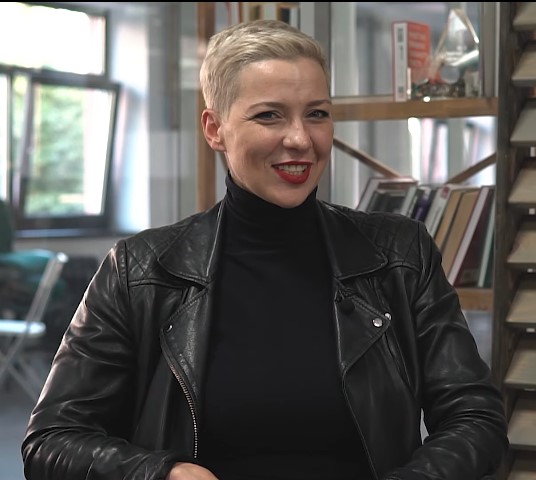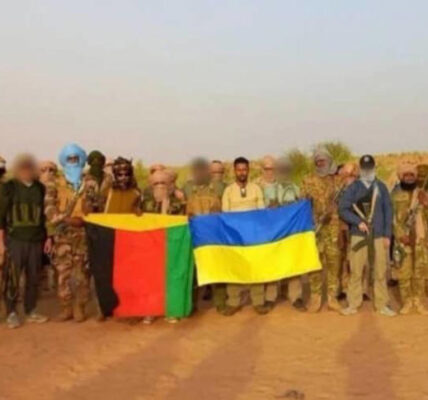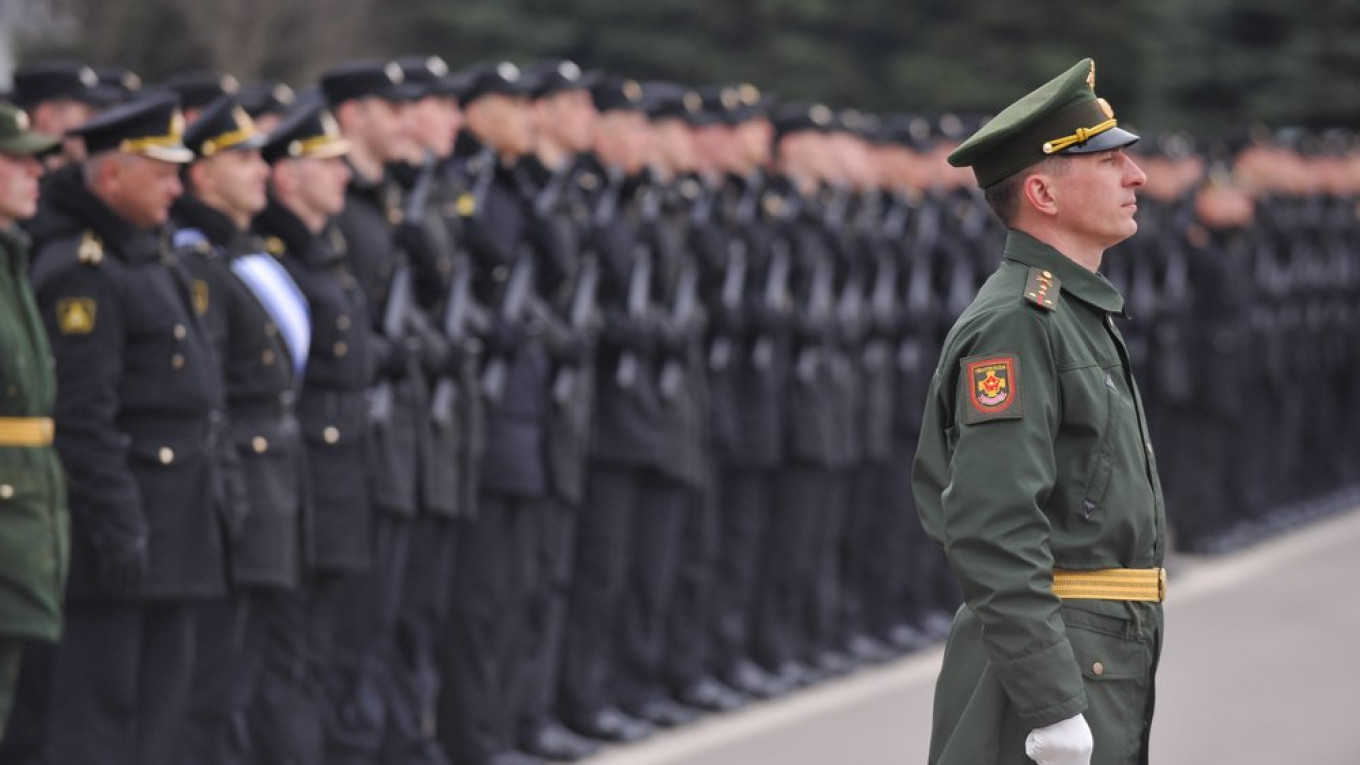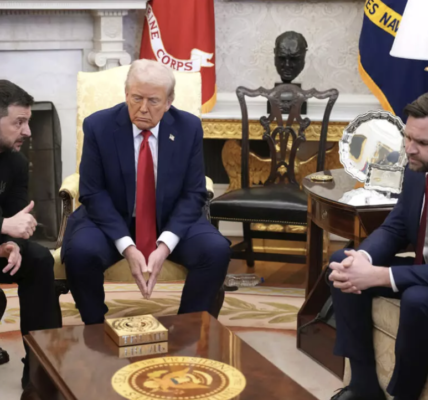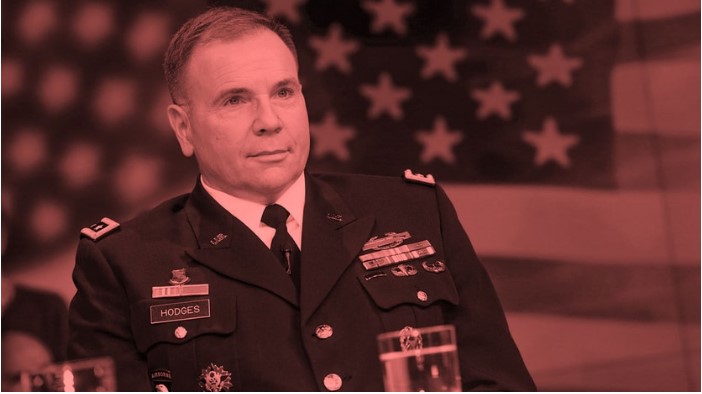
During an interview with the Economist on November 24th, Former Commander of United States Army Europe, Retired Army Lieutenant General Ben Hodges stated, “Ukraine has achieved irreversible momentum, there is no going back. But there is no doubt that Ukraine is going to win, that they are going to compel Russian forces to leave Ukrainian territory, including Crimea.”
He went on to add in a separate interview with Spotlight Ukraine that, “I think Ukraine will liberate Crimea in the summer of 2023.” Hodges assessment, if correct, leaves Putin with few options. He can ill afford to lose Crimea – whose strategic location provides critical sea ports for influence and control of the Black Sea; the peninsula also secures the underbelly of southern Russia.
Russian President Vladimir Putin needs an option to relieve the pressure on his ground forces struggling to maintain possession of Bakhmut and Melitopol, and time to build sufficient combat power and defenses for the inevitable Ukraine offensive to reclaim the Crimea peninsula. His ‘special military operation’ has proven to be a complete disaster.
Having suffered a humiliating defeat at Kyiv’s doorsteps at the onset of the war, retreating from Kherson in the face of a Ukrainian counter-offensive, and now throwing hundreds of recently mobilized under trained and under resourced Russian soldiers into a meat grinder known as Bakhmut – Russia has suffered over 96,000 casualties in ten months of combat.
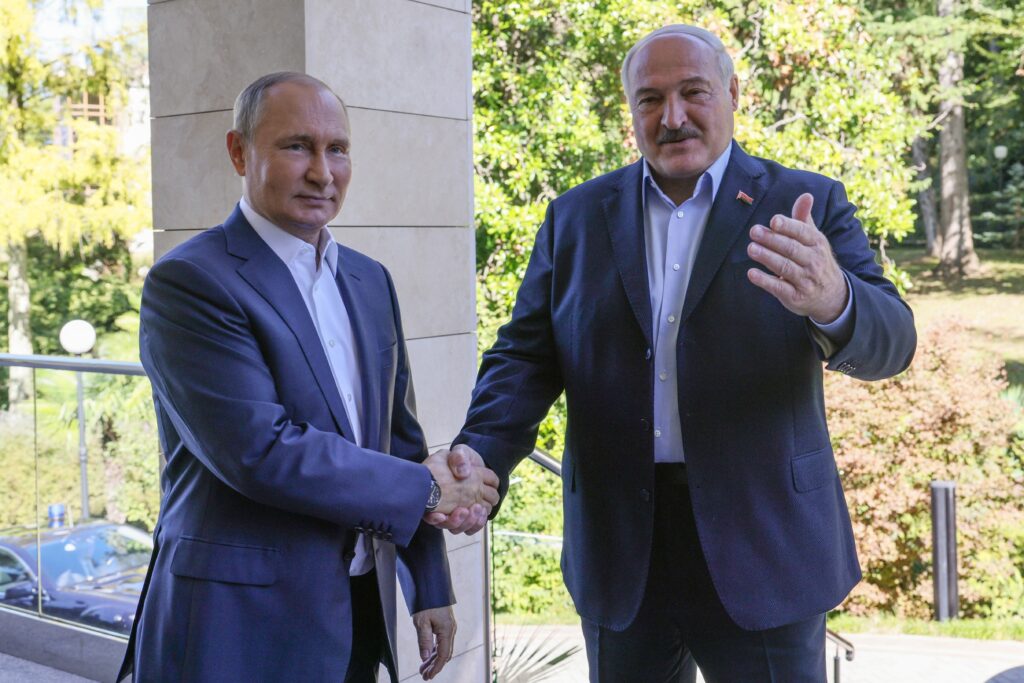
(Gavriil Grigorov, Sputnik, Kremlin Pool Photo via AP)
That option, as bad as it may seem, may not be the only butcher shop Putin is contemplating — Belarus may well be next. While Belarusian President Alexander Lukashenko was trying desperately to ‘jump multiple sharks,’ Russia’s ‘open window’ syndrome may have finally found its way to Minsk. When you listen to Russian propagandists and talk show hosts – Vladimir Solovyov, Margarita Simonyan, and Sergey Mardan, and consider the pressure Putin is under with his failed ‘special military operation’ – suddenly it rings possible. What once was considered something ‘that would never happen’ … could happen.
Belarus, whether Minsk wants to or not, may need to play a necessary role in the Kremlin’s plans to reverse Russian misfortunes on the battlefield, thereby affording Putin new courses of action if he needs them. The offer he made to Belarusian President Alexander Lukashenko during the 2020 Presidential Election that he ‘could not refuse’ may pay dividends – Belarus could be on the brink of finally joining Russia in a second assault on Ukraine and its capital city of Kyiv.
But it took the unexpected passing to Belarus Minister of Foreign Affairs Vladimir Makei, hospitalization of jailed political opposition leader Maria Kolesnikova, and an ‘office call’ with visiting Russian Defense Minister Sergey Shoigu in Minsk to get Lukashenko on the same sheet of music. Sergey Prigozhin’s sledgehammer did not prove necessary — yet.
Apparently, patience at the Kremlin began wearing thin in the Spring. In April, Ukraine Defense Intelligence reported that the “1st Tank Army of Russia was preparing to invade and seize the territory of Belarus” and in July, they reported that Russia had plans to actually annex Belarus. Fast forward to November 26th and Makei unexpectedly passed away at the age of 64. An official cause of death was not provided by Lukashenko’s government; however, rumors were circulating throughout Minsk that he may have been poisoned. That same day, an article posted on the Ukinform web site alleged that upon Putin’s return from the latest CSTO summit, “Russian military intelligence may attempt in the coming days to pursue a scenario involving either an assassination attempt targeting … Lukashenko or its imitation, with the aim of ultimately intimidating the latter and prompting him to finally order his troops to directly engage in the war on Ukraine, alongside Russian troops.”
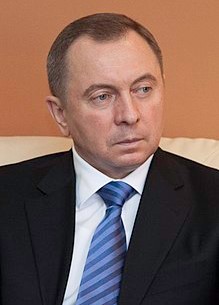
Was Makei’s death a blunt Komitet Gosudarstvennoy Bezopasnosti-type (KGB) message for Lukashenko? According to the Kyiv Post, there are unverified reports “Makei was assassinated after Moscow discovered he was covertly in contact with the West regarding the war in Ukraine and was working to prevent Putin from further integrating Belarus into Russia.” Lukashenko’s reluctance to put Belarusian ‘boots on the ground’ in direct support of Russian military operations in Ukraine may have run counter to Putin’s ‘offer he could not refuse.’
The Russian President re-installed a pro-Moscow Lukashenko government and expected loyalty in return. Fearful for his life, there are reports that Lukashenko ordered that his cooks, guards, and servants be replaced to protect himself on November 28th.
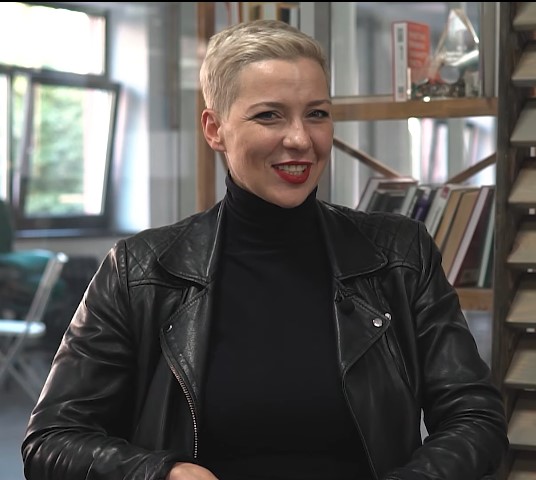
Then another interesting event occurred on November 28th, Kolesnikova, a prominent member of the political opposition currently serving an 11-year jail sentence, was taken from her prison cell and placed in intensive care in a hospital in the eastern city of Gomel. Belarusian officials released a terse official statement on her condition, stating only that she had a “surgical pathology.” Kolesnikova is a Belarusian nationalist who led Viktor Babariko’s 2020 Presidential campaign against Lukashenko.
When Babariko was detained, Kolesnikova joined forces with Sviatlana Tsikhanouskaya and supported her presidential candidacy. After Lukashenko declared himself the winner, she joined thousands of Belarusians to protest the ‘results’ and was later arrested and imprisoned in September 2020. Tsikhanouskaya was able to escape Belarus and currently lives in exile in Lithuania, where the self-described Belarusian president-elect manages the political opposition and partisan acts of sabotage in Belarus. Her strategy, in Solidarity with Kolesnikova, is to re-create the Belarusian national identity – an act Putin’s Kremlin has zero tolerance for.
Did the Kremlin target Kolesnikova as well? If Makei and Lukashenko were eliminated, she could be released from prison and become President. And if Kolesnikova did survive an assassination attempt – should Tsikhanouskaya increase her security as well? The KGB – the Federal Security Service’s (FSB) predecessor and Putin’s former employer, has been accused of worse. Kolesnikova and Tsikhanouskaya are both members of the Razam political party, which was founded by Babariko.
They are also members of the Coordination Council, a Belarusian non-governmental body created by then-presidential candidate Tsikhanouskaya to facilitate a democratic transfer of power as the result of the 2020 Belarusian presidential election. The Razam political party (and movement) and Coordination Council aim to preserve Belarus – an existential threat to Putin’s vision of a ‘greater Russia.’
Putin needs Belarus to win in Ukraine and he can ill afford a nationalist state interrupting his plans. The timing and location of the signing of a protocol “amending the Russian-Belarusian interstate agreement on the joint provision of regional security in the military sphere” between the defense ministers of Russia and Belarus, Shoigu and Viktor Khrenin, in Minsk on December 3rd reinforced that necessity – and reinforced the message to Lukashenko … get on board.
Shoigu’s comments that “actions are being taken on the territory of Belarus for the combat coordination of Russian and Belarusian formations and military units assigned to the regional group of troops,” and that Moscow “appreciated the determination of Belarus to resist the hostile course that the United States has chosen towards Russia” confirmed Lukashenko had finally ‘bent the knee.’ Belarus had just been added to the Russian playbook, giving Putin new options – Belarusian soldiers at Kyiv’s gate may figure prominently.
The most dangerous, extreme, and least likely of Putin’s Belarus three primary options would be to remove Lukashenko from office, annex the country, install a Russian government, and take complete control of its military. He could then launch a second invasion of Ukraine to seize and secure the capital city of Kyiv.
Putin has already demonstrated little regard for his own Russian soldiers – putting Belarusian soldiers in the path of Ukrainian bullets is the least of his concerns. They would simply become another tool in his kit bag, making the on-going slaughter in Bakhmut pale in comparison.
The second most likely course of action, one seemingly underway now, would be for Lukashenko to submit to pressure from the Kremlin and allow Russian forces to continue to build combat power, train, and stage in Belarus. This option presents a threatening military force on Ukraine’s border – a demonstration, forcing Ukraine to keep soldiers and equipment in the north to protect the capital city. It would also take pressure off Russian forces struggling to defend Bakhmut and Melitopol, and buy time to prepare defensive positions along the Perekop Isthmus for the inevitable Ukrainian offensive Hodges anticipates in February to reclaim Crimea.
A third possibility would be a dangerous blend of the two. Instead of an outright invasion of Ukraine, Putin would launch a spoiling attack in northern Ukraine to disrupt or preempt a Ukrainian offensive in the south to seize Crimea.
The false flag ‘terroristic threat’ being used to justify the Russia – Belarus joint military group militarization along Ukraine’s border with Belarus cannot be dismissed. Under the guise of this ‘terroristic threat,’ the Belarus Security Council announced on December 8th “it was moving troops and military hardware to counteract what it called a threat of terrorism.” On December 13th a snap comprehensive readiness check was ordered by Lukashenko in an obvious demonstration designed to get Ukraine’s attention – and it did. The West should remember Putin’s ‘special military operation’ on February 24 began as an exercise as well, and an invasion was deemed ‘not likely.’
In what very well could be Putin’s final Jenga move, the simple fact is that the Belarus military presents a threat to Ukraine — and Putin represents a threat to Lukashenko. Regardless of the course of action that plays out – they are part of the equation now, and Ukraine and the West must take notice. So too must Minsk unless Lukashenko wants a day with Prigozhin’s Sledgehammer.

